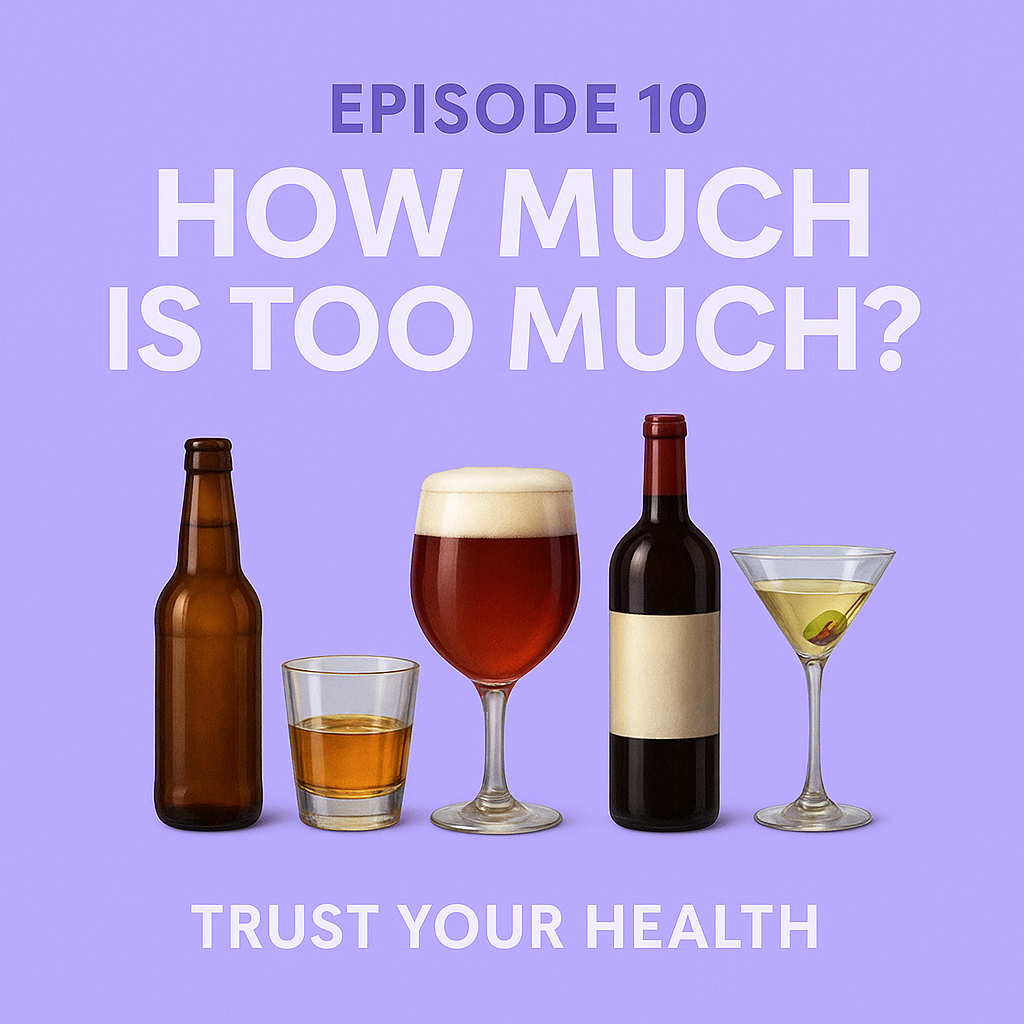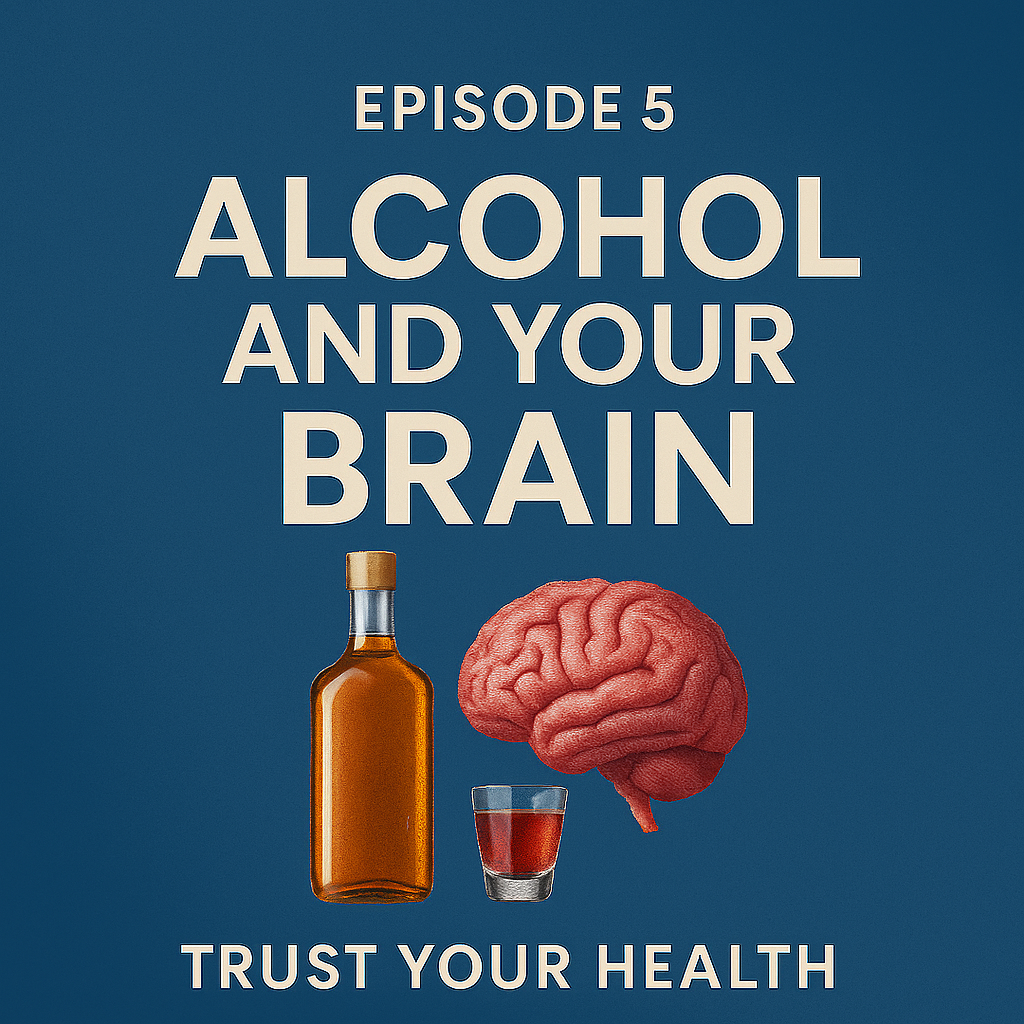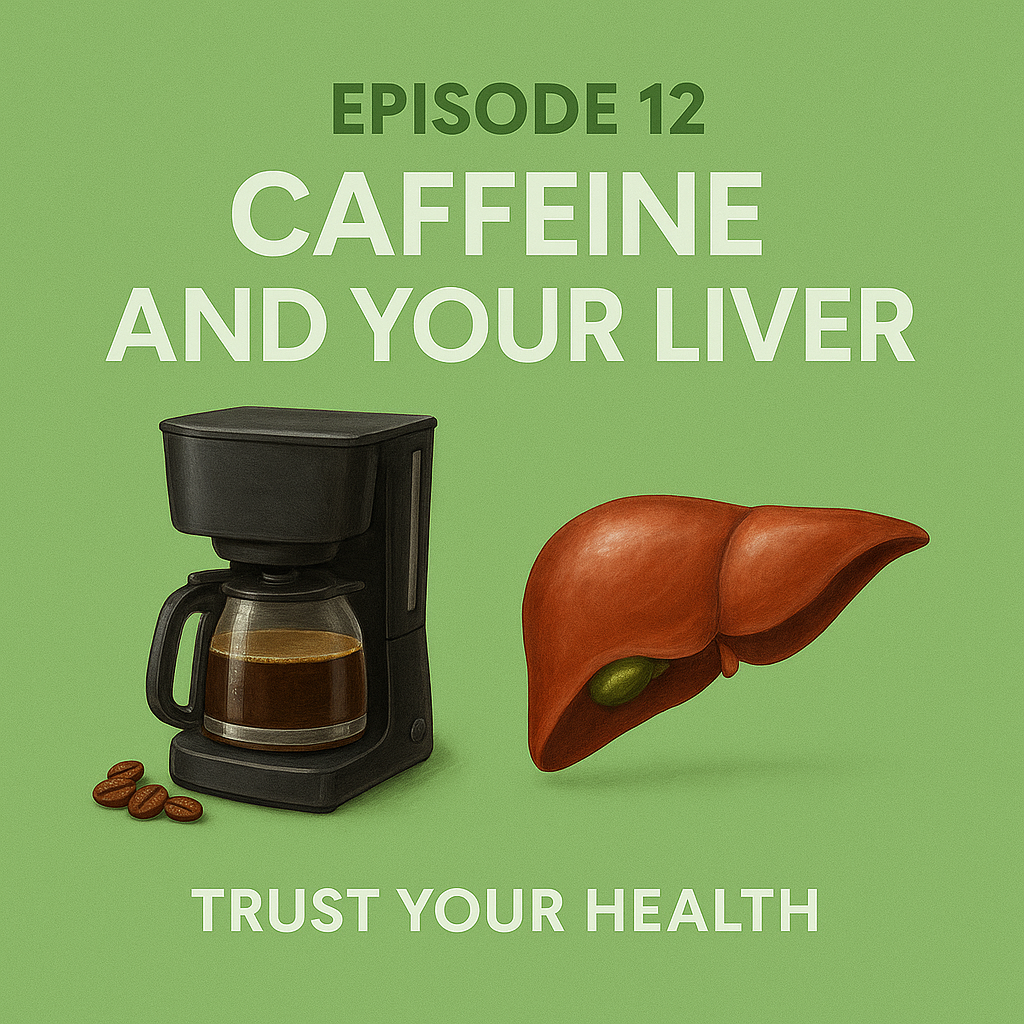Episode Transcript
When people talk about alcohol’s impact on health, they rarely think about its effects on hormones, fertility, and sexual health.
But your reproductive system quietly pays the price every time you drink — and for some people, the damage can last longer than they expect.
In this episode of Trust Your Health, we’re uncovering how alcohol disrupts your reproductive hormones, impairs fertility, and affects sexual health in both men and women.
Let’s start with hormones.
Alcohol interferes with the delicate balance of hormones that regulate your reproductive system — including testosterone, estrogen, progesterone, and luteinizing hormone.
In women, alcohol can increase estrogen levels while disrupting the normal rhythm of menstrual hormones. This can lead to irregular or missed periods, heavier bleeding, and even early menopause. Chronic drinking is also linked to a higher risk of polycystic ovary syndrome, or PCOS, which can make it harder to conceive.
In men, alcohol lowers testosterone production. Even moderate drinking can reduce sperm count, decrease sperm quality, and shrink testicular tissue over time. The result? Lower fertility, reduced libido, and an increased risk of erectile dysfunction.
These effects don’t just appear with heavy drinking. Studies show that even seven drinks a week can reduce fertility in both men and women. And the longer alcohol use continues, the harder it can be to reverse the damage.
Alcohol also increases oxidative stress — damage at the cellular level — which harms eggs, sperm, and the reproductive organs themselves.
For people who are already trying to conceive, even small amounts of alcohol can lower the chances of pregnancy each cycle. And during pregnancy, alcohol poses serious risks to the developing baby — including miscarriage, stillbirth, and fetal alcohol spectrum disorders.
Alcohol’s effects aren’t limited to fertility. In both men and women, it can disrupt sexual health by lowering arousal, decreasing sensitivity, and making it harder to reach orgasm.
So what can you do?
If you’re trying to conceive, the advice is clear: stop drinking altogether. If you’re not currently trying, but care about your hormonal and sexual health, keep alcohol to a minimum — and give your body alcohol-free time to recover its balance.
Pay attention to warning signs like missed periods, reduced libido, or changes in sexual performance. And don’t assume these changes are just part of aging — alcohol may be playing a bigger role than you think.
Your reproductive health is a reflection of your overall health — and protecting it starts with what you put in your body.
In our next episode, we’ll take on one final question about alcohol: how much is too much? — and what “safe drinking” really looks like.
Thanks for listening to Trust Your Health. Because trusting your health begins by understanding your body.
Be sure to follow the podcast so whenever you need clear, honest advice about your body, we’ll be here to help you make sense of it.


